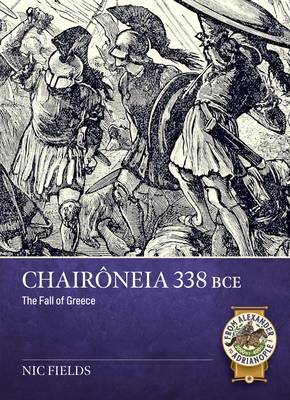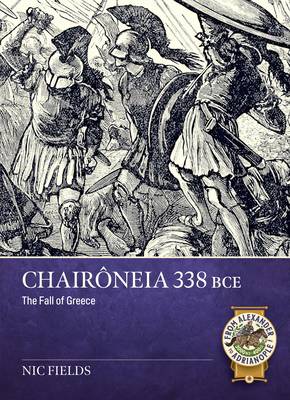
Bedankt voor het vertrouwen het afgelopen jaar! Om jou te bedanken bieden we GRATIS verzending (in België) aan op alles gedurende de hele maand januari.
- Afhalen na 1 uur in een winkel met voorraad
- In januari gratis thuislevering in België
- Ruim aanbod met 7 miljoen producten
Bedankt voor het vertrouwen het afgelopen jaar! Om jou te bedanken bieden we GRATIS verzending (in België) aan op alles gedurende de hele maand januari.
- Afhalen na 1 uur in een winkel met voorraad
- In januari gratis thuislevering in België
- Ruim aanbod met 7 miljoen producten
Zoeken
Omschrijving
Boiotia, late summer 338 BCE. The defeat and victory on the small Boiotian plain east of Chairôneia was to drag the Greek world of warring autonomous city-states into a proto-national state. The architect of this geopolitical shake-up, with its sudden death of old alliances and antagonisms, was Philip II of Macedon. He was a creative warrior king whose expansionist policies and military reforms had turned a turbulent unstable kingdom on the northern fringes of the Greek world into a regional superpower.
The battle itself was a hard-fought contest between the old-style citizen hoplite phalanx of the Greek states and the professional sarissa-armed phalanx of Macedon. His victory, the last but greatest of his career, clearly demonstrated Philip's tactical acumen and superior leadership skills.
The battle itself was a hard-fought contest between the old-style citizen hoplite phalanx of the Greek states and the professional sarissa-armed phalanx of Macedon. His victory, the last but greatest of his career, clearly demonstrated Philip's tactical acumen and superior leadership skills.
Specificaties
Betrokkenen
- Auteur(s):
- Uitgeverij:
Inhoud
- Aantal bladzijden:
- 156
- Taal:
- Engels
- Reeks:
Eigenschappen
- Productcode (EAN):
- 9781804519905
- Verschijningsdatum:
- 15/06/2026
- Uitvoering:
- Paperback
- Formaat:
- Trade paperback (VS)
- Afmetingen:
- 178 mm x 248 mm

Alleen bij Standaard Boekhandel
+ 110 punten op je klantenkaart van Standaard Boekhandel
Beoordelingen
We publiceren alleen reviews die voldoen aan de voorwaarden voor reviews. Bekijk onze voorwaarden voor reviews.









